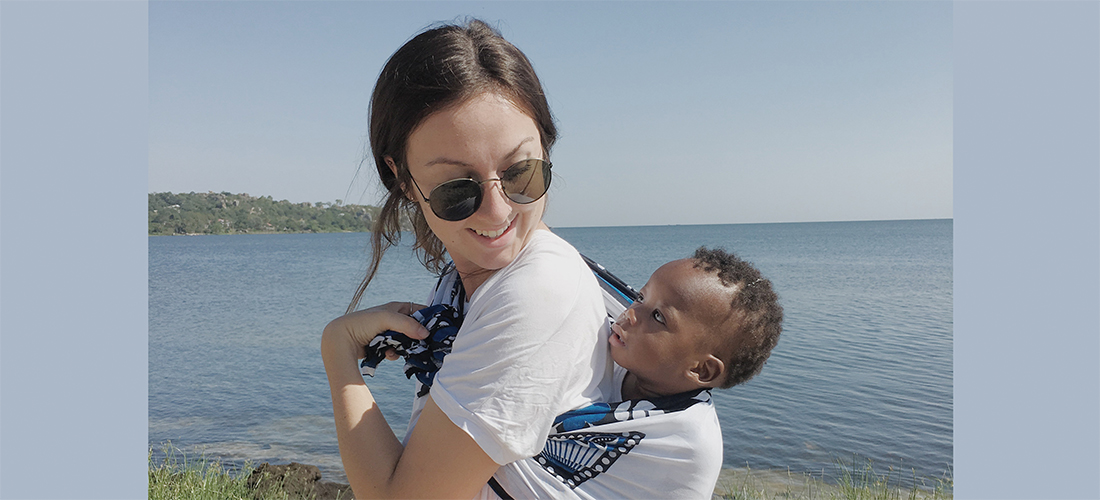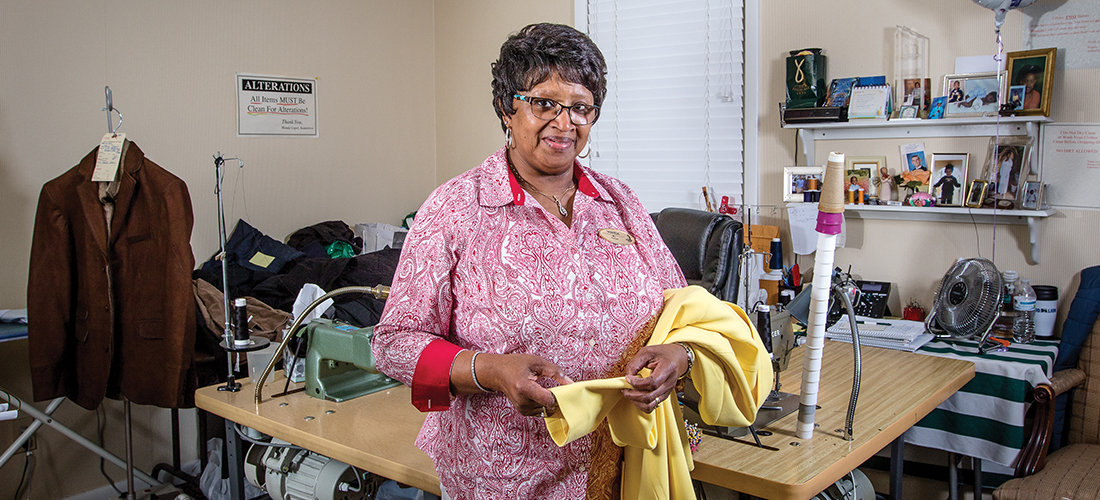Life lessons of the “baby home” in Tanzania
By Samara Wright
When I arrived in the small village of Mwanza in the summer of 2017, I walked slowly through the tiny market, my eyes taking in each small shop made out of dirt and clay. I watched girls my own age baking “chapati” and “mandazi,” similar to our tortillas and doughnuts. Some sold fruits and vegetables, including the largest avocados and mangos I’d ever seen. The village, and the people who would become my friends, quickly felt like home to me.
For six of my eight weeks there, I worked in a baby home, an orphanage, called Forever Angels. Neshibu, one of the mamas, or care workers, invited me to her house for lunch, the first meal of her day. We walked the twisted path between dirt walls that she walked every day. Her home, one of the nicest in the village, was one room, with a tiny bed. It was beautifully cluttered with things she had collected, clippings from local magazines, pink tinsel saved from baby home parties, a large wooden cross. I was welcomed by her two young children, who immediately introduced me to their neighbor friends. After Neshibu cooked rice and beans on the tiny stove she shared with her neighbors, we sat around her bed and ate together, showed each other our favorite photos, laughed and sang songs.
On Tuesdays of every week as many as 150 families came to the baby home, some traveling as much as five hours to get there. We would teach them about nutrition and what to do if their child had a fever. For most of them baby formula represented an entire week’s wages and was impossible to afford. We gave them formula and peanut butter and, usually, that was enough to keep them from abandoning their children, to keep their children from being the ones we cradled in the baby home each day. I played photographer and took family photos which we printed out and gave to each family as a gift. A picture they could hold in their hands meant more to them than I would have ever imagined.
But mostly I remember the babies. I held them each and every day, giving them baths and hearing their giggles. And I remember the music. The baby home had very few CDs but one of them was the soundtrack of the musical Mamma Mia. I laughed until I cried watching 30 or 40 African toddlers gyrating wildly to the song “Dancing Queen.” They sang “Happy Birthday” at the top of their lungs to every single insect we found because they loved singing one of the few songs they knew in English. I read stories to them, both in English and Swahili, and they begged for more. I walked down to Lake Victoria with a baby strapped to my back. And when it was time to eat, I watched them sit around the dinner table together, like real family.
Every night when I put them to bed, straight out of the bath, all cozy and clean in their pajamas, they lined up so I could kiss each one on the head and say “kulala” or “goodnight.”
I learned their stories. One had been left in a graveyard, one on the outskirts of the baby home, some in hospitals. Many had starved, some with both parents dead, some whose mothers died and whose fathers couldn’t take care of them. I cried nearly every day, of gratitude and heartbreak. I felt like I was walking exactly where I was supposed to be, a feeling like I had never felt before.
I left Mwanza wanting to know what was in the best interest, not just of the orphans I’d held each day, but also for the 8 million additional orphans in care institutions. I connected with professionals in the international adoption field, something that keeps me close to the place that feels like home, even when I’m not there. I’d seen the joy of international adoption but also became aware of the corruption that plagues it. Today 80 percent of children in care institutions around the world aren’t orphans, but have been either taken or bought from their families to meet the demand First World countries have for orphaned children. Not all orphanages and adoption processes look like the baby home in Mwanza.
Though much of what I have learned was shocking and scary, I am encouraged because I saw it done right at Forever Angels. I’m certain of one thing — the importance of being culturally diverse as individuals, families and communities. In all of my conversations with both advocates and opponents of international adoption, there has been one common denominator: We must respect and promote cultural awareness and sensitivity. We must champion it.
The babies I held in my arms every day are the voiceless. They have nothing, not even a mother or a father. Regardless of whether they grow up in Tanzania, East Africa, or Southern Pines, North Carolina, they need a community that is inclusive, that sees the beauty of diversity and the value of every life.
I am thankful for all those who made it possible for me to walk where I have always dreamed of walking, thankful to this community that taught me, the community that I am proud to call home. I’m thankful to Young Life Africa and Forever Angels. I hope we can continue to dream together and know that what is cultivated in our community does, in fact, have the power to change the world.
Samara Wright is a 2016 graduate of Pinecrest High School and a sophomore at Appalachian State University, majoring in communication studies. An intern for Young Life Africa, she plans on returning to Tanzania after graduation.


